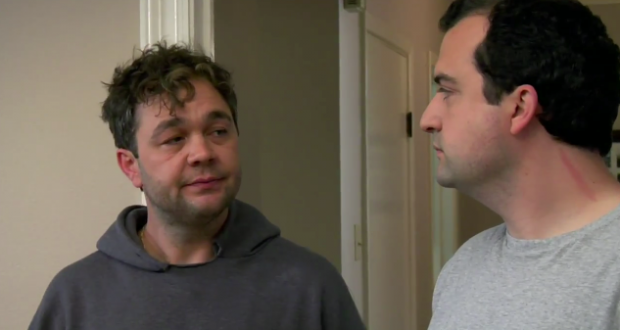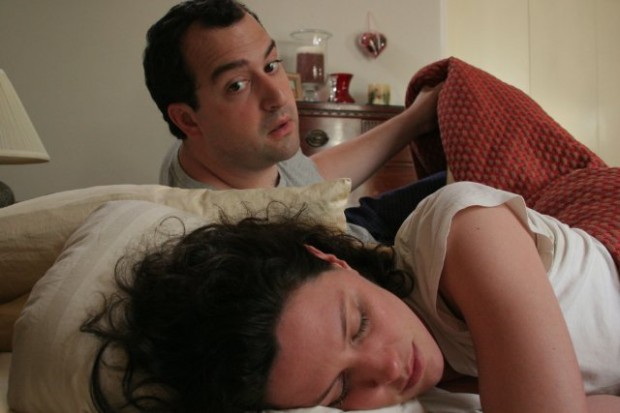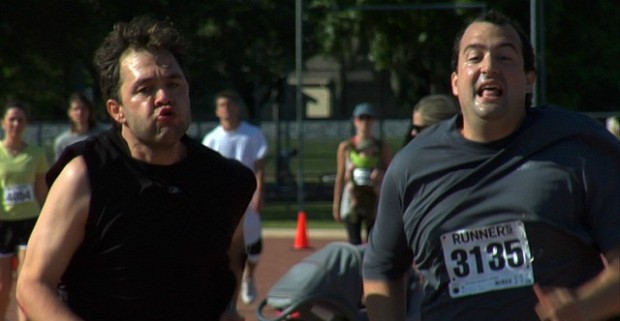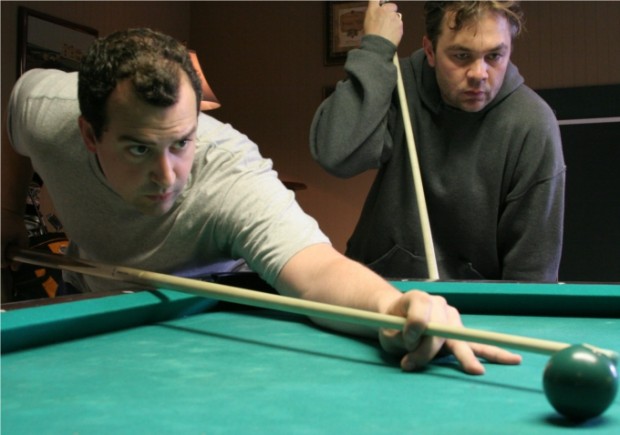
Having worked both within the studio system and out of it, the brothers Mark and Jay Duplass whose work can be categorized as the must successful of the mumblecore genre (if you believe mumblecore was actually a movement that happened). In the event of their new indie film The Do-Deca Penthalon, the brothers graciously sat down to chat with us about their growth as filmmakers working within, yet outside the studio system from their hometown New Orleans.
How is it working both instead the studio system and out of it? Similarly, what’s it like working with more freedom [than most have] in said system on things like Cyrus and Jeff Who Lives at Home?
Mark Duplass: [The Do-Deca Penthalon] is an interesting hybrid of a film. It was developed as a big budget studio comedy. We wrote it for a studio, and then while we were writing it we decided we didn’t want this to be Step Brothers; we wanted this to be a more shaggy, low-fi, relationship-driven version of the film. We asked the studio if we can take this one and give them another script, and we cobbled together the money we made writing movies and went down to New Orleans, stayed at our parent’s house and made this film. We took this large budget sports comedy and made it very cheaply.
Do you think it could have worked as an Apatow-esque film? Jeff, Who Lives at Home has more moving parts, and it still blends humor and observation and sadness that we don’t get in those bigger films.
Jay Duplass: We definitely are interested in exploring larger films. We’re careful about the films we make and we want to grow carefully and we want to make a good film, so we don’t want to bite off more than we can chew. Jeff, Who Lives at Home was a bigger step and we’re going to explore beyond that.

Those themes of family that always have existed in your work, these quirks – in Do-Deca it’s a secret competition that exists. Is that something you are looking to carry out in these bigger works?
MD: It’s what we’re drawn to, we call it the epically small. How you can extrapolate the entire DNA of a relationship between a man and women by how they discuss styles of loading the dishwasher?That’s just funny to us, and what we like. Do-Deca is an example of this. There’s an earnest example of how these guy approach this, and because they are so serious doesn’t mean we can’t see the inherent sadness in it too.
I think the sports are a Skelton key into something deeper and darker.
JD: In a weird way, we’re doing a goofy Olympics, but in the true Olympics they just want to be the best. They’ll compete against anyone – it’s an ego-driven thing. With The Do-Deca Pentathlon there’s only one person they want to beat, and it’s only going to happen once, so strangely it feels more epic. This is the culmination of everything in their life coming together.

I know this was put on the back-burner and edited a bit later, what was it like after coming back after two studio films – what was it like having that creative freedom.
JD: There’s this grass is always greener mentality amongst filmmakers – you know when you’re on a studio film you’re always saying “I wish I could back to my indie roots” and when you’re on an indie film you’re saying “Man I wish I had all those crew to help me out” – so there was a part of us that was excited to get back to this film and do it independently but also to unearth a very inspired piece of art shot in 2008 and apply what we learned. It was very cool to grow the film in a way the film wouldn’t have been able to grow had we finished it in 2008.
What sort of things changed, if you’re lucky you maybe spend a year editing – what got sharper in the process.
JD: A lot of things we couldn’t track, the one example we were conscious of, Baghead and Puffy Chair we didn’t use score – in the case of Puffy Chair we used songs, and in Baghead some brief ambient music, but it wasn’t until Cyrus and Jeff, Who Lives at Home, our great composer Mike Andrews showed us subtle ways of doing this. Mark and I are obsessed with cinema verite and we were temping to the soundtrack to Rudy and it wasn’t until we were temping with that soundtrack that we realized that was what was going on in the hearts and minds of these athletes – or two chubby guys that wanted to be athletes.
Mark what’s useful about being both an actor and director?
MD: There are always surprises on set. The natural dynamics between actors is always different than you might expect. We find that rigidity is about ego and convincing people what you know you want, so we try to stay loose and figure what is happening verses trying to force something to happen.

How do you guys work as a team?
JD: We don’t really divide stuff up – we function as a unit and our tastes have been curate in the same household. We’re remarkably similar. Our communication is bordering on telepathic; it’s quick and instinctual. Working together and sharing that communication process allows us to be bolder. There’s a lot of pressure in studio filmmaking to move on, to move fast and we’re brutally honest with each other.
I guess it also helps to, to have some of the same actors returning – like Steve Zissis.
MD: We love Steve, he continues to be our 250-pound Greek teddy bear and when you get that, you’ve got to hold on to that.
Great – and New Orleans – Jeff, Who Lives At Home and Do-Deca take place there – what role does the city play for you guys?
JD: Mark and I are pretty much cave men and going home gives us a home court advantage where real human beings live whereas LA sometimes feels the opposite of that – like a mechanized industrial process. In general we just like the going away vibe of making a film.
What’s next? I don’t see anything up next on IMDb.
JD: We’re really interested in doing something a little different and we’re working a few scripts.

The Do-Deca-Pentathlon is now playing in select cities, it is also screening in special engagements via TUGG and available nation-wide on demand.

